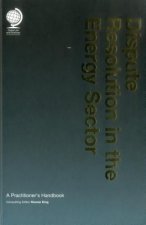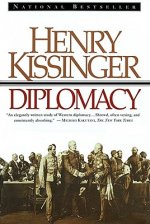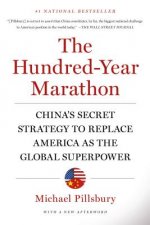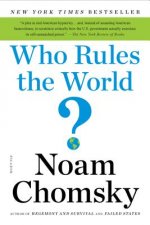
Kód: 01358948
Future of the International Labour Organization in the Global Economy
Autor Francis Maupain
The International Labour Organization was created in 1919, as part of the Treaty of Versailles that ended the First World War, to reflect the belief that universal and lasting peace can be accomplished only if it is based on socia ... celý popis
- Jazyk:
 Angličtina
Angličtina - Väzba: Pevná
- Počet strán: 320
Nakladateľ: Bloomsbury Publishing, 2013
- Viac informácií o knihe

Mohlo by sa vám tiež páčiť
-

Eternity
62.45 € -

Microoptics
166.20 € -

Sacred Mysteries
22.89 € -

Cell 8
12.56 € -13 % -

Dispute Resolution in the Energy Sector
204.33 € -

Lucid Awakenings
33.62 € -4 % -

Crossing the Line
17.88 € -4 % -

MESSAGE OF THE PRESIDENT OF THE UNITED S
17.98 € -

Plyš očka Monstaz neon orange přívěšek
2.95 € -26 % -

Sastun
4.59 € -19 % -

Deutsch-Stars - BOOKii-Ausgabe - 1. Schuljahr
12.77 € -

Geometrie mit dem Zirkel
16.45 € -4 % -

La médiation commerciale en France et en Allemagne - une comparaison
21.66 € -2 % -

Osnovy jeffektivnosti sistemy gosudarstvennogo upravleniya v Rossii
42.82 €
Darujte túto knihu ešte dnes
- Objednajte knihu a vyberte Zaslať ako darček.
- Obratom obdržíte darovací poukaz na knihu, ktorý môžete ihneď odovzdať obdarovanému.
- Knihu zašleme na adresu obdarovaného, o nič sa nestaráte.
Viac informácií o knihe Future of the International Labour Organization in the Global Economy
Nákupom získate 411 bodov
 Anotácia knihy
Anotácia knihy
The International Labour Organization was created in 1919, as part of the Treaty of Versailles that ended the First World War, to reflect the belief that universal and lasting peace can be accomplished only if it is based on social justice. As the oldest organisation in the UN system, approaching its 100th anniversary in 2019, the ILO faces unprecedented strains and challenges. Since before the financial crisis, the global economy has tested the limits of a regulatory regime which was conceived in 1919. The organisation's founders only entrusted it with balancing social progress with the constraints of an interconnected open economy, but gambled almost entirely on tools of persuasion to ensure that this would happen. Whether that gamble is still capable of paying-off is the subject of this book, by a former ILO insider with an unrivalled knowledge of its work. The book forms part of a broader inquiry into the relevance of founding institutional principles to today's context, and strives to show that the bet made on persuasion may yet pay off. In part, the text argues that there may be little alternative anyway, showing that the pathways to more binding solutions are fraught with difficulty. It also shows the ILO's considerable future potential for promoting effective, universal regulations by extending its tools of persuasion in as yet insufficiently explored directions. Starting with an examination of how the organisation's institutional context differs from 93 years ago, the author goes on to evaluate the prospects of numerous proposals put forward today, including the trade/labour linkage, but going beyond this. As a case study in how strategic choices can be made under legal, social and institutional constraints, the book should be valuable not only to those with an interest in the ILO, but to anyone who studies international organisation, labour law, law and society or political economy.
 Parametre knihy
Parametre knihy
Zaradenie knihy Knihy po anglicky Society & social sciences Politics & government International relations
166.10 €
- Celý názov: Future of the International Labour Organization in the Global Economy
- Autor: Francis Maupain
- Jazyk:
 Angličtina
Angličtina - Väzba: Pevná
- Počet strán: 320
- EAN: 9781849465021
- ISBN: 1849465029
- ID: 01358948
- Nakladateľ: Bloomsbury Publishing
- Hmotnosť: 656 g
- Rozmery: 163 × 241 × 24 mm
- Dátum vydania: 23. October 2013
Obľúbené z iného súdka
-

On Palestine
10.62 € -18 % -

Prisoners of Geography
11.13 € -23 % -

World Order
11.34 € -24 % -

International Relations, Global Edition
109.16 € -

Grand Chessboard
23.50 € -

Diplomacy
16.45 € -24 % -

Clash of Civilizations and the Remaking of World Order
16.86 € -15 % -

Hundred-Year Marathon
16.55 € -22 % -

The Spy and the Traitor
10.93 € -24 % -

Understanding the Intelligence Cycle
77.88 € -

Who Rules the World?
11.23 € -25 % -

Who Rules the World?
10.62 € -21 % -

Dead Aid
16.65 € -9 % -

World Order
16.35 € -3 % -

Adults In The Room
13.07 € -22 % -

Legacy of Ashes
17.88 € -16 % -

Evolution of Cooperation
19.11 € -

Strategic Vision
16.14 € -21 % -

Secret World
18.29 € -24 % -

Geopolitics and Geoculture
22.07 € -35 % -

Dawn of Eurasia
12.26 € -23 % -

How Spies Think
11.03 € -23 % -

Gaza in Crisis
12.26 € -23 % -

Planetary Cycles Mundane Astrology
19.82 € -

OVERTHROW : AMERICA'S CENTURY OF REGIME
21.05 € -23 % -

Is the EU Doomed?
24.83 € -

Righteous Victims
24.42 € -9 % -

Directorate S
17.16 € -19 % -

Europe's Border Crisis
45.27 € -

America's Strategy in World Politics
73.28 € -

Destroying Libya and World Order
19.82 € -1 % -

My Nationalist Pony
36.79 € -

Critical Practices in International Theory
217.42 € -

American Century and Beyond
20.43 € -18 % -

Heroic Failure
12.56 € -7 % -

Oxford Handbook of the European Union
57.75 € -

Rise and Kill First
16.55 € -24 % -

PEACE TO END ALL PEACE
21.05 € -23 % -

Tragedy of Great Power Politics
21.46 € -9 % -

Countdown to Zero Day
16.96 € -17 % -

Revenge of Geography
18.39 € -21 % -

Political Order and Political Decay
15.22 € -23 % -

Naked Diplomat
14.40 € -23 % -

Against Our Better Judgment
13.07 € -

After the Empire
15.94 € -

Legacy of Ashes
23.40 € -9 % -

Dragons and the Snakes
32.09 € -9 % -

Oxford IB Diploma Programme: Global Politics Course Book
58.26 € -

Emergency Sex (And Other Desperate Measures)
16.45 € -25 %
Osobný odber Bratislava a 2642 dalších
Copyright ©2008-24 najlacnejsie-knihy.sk Všetky práva vyhradenéSúkromieCookies



 21 miliónov titulov
21 miliónov titulov Vrátenie do mesiaca
Vrátenie do mesiaca 02/210 210 99 (8-15.30h)
02/210 210 99 (8-15.30h)